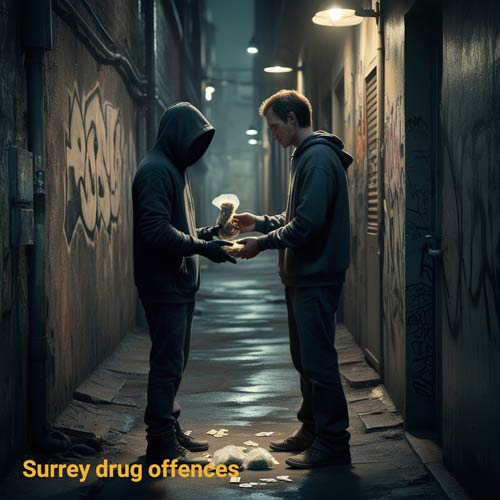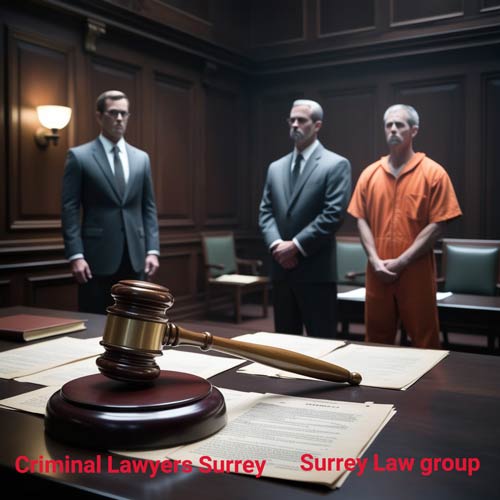Table of Contents
Drug offenses are a significant concern for societies worldwide, impacting individuals, families, and communities in profound ways. These crimes encompass a wide range of activities, from possession and trafficking to manufacturing and prescription fraud. Understanding drug offenses is crucial not only for enforcing the law but also for addressing the underlying issues of addiction, mental health, and socio-economic disparities that often contribute to these crimes.
In recent decades, governments and law enforcement agencies have grappled with the complex challenges posed by drug-related crimes. Debates over punitive measures versus rehabilitative approaches have highlighted the need for a balanced response that considers both justice and compassion. At the same time, evolving drug laws, such as the decriminalization of certain substances, have reshaped how societies perceive and handle these offenses.
This article aims to provide a comprehensive overview of drug offenses, including their categories, legal consequences, and societal impact.
Categories of Drug Offenses
Drug offenses encompass a broad spectrum of activities, each with its own legal definitions and consequences. Understanding these categories is essential to grasp the scope of drug-related crimes and their impact on society. Below are the primary types of drug offenses:
A. Possession
Possession is one of the most common drug offenses and involves having illegal drugs for personal use. Laws typically differentiate between simple possession and possession with intent to distribute, with the latter carrying harsher penalties. Simple possession often results in misdemeanors, fines, or mandatory rehabilitation, whereas intent to distribute may lead to felony charges, depending on the quantity and type of drug involved.
B. Manufacturing and Cultivation
This category includes the production of illegal drugs, such as synthesizing methamphetamine, processing cocaine, or cultivating cannabis without authorization. Manufacturing offenses often involve large-scale operations and may include the possession of equipment and chemicals used in drug production. Cultivation offenses typically involve the illegal growing of plants like marijuana, opium poppies, or coca. Penalties are severe due to the perceived threat these activities pose to public safety.
C. Trafficking and Distribution
Trafficking is the illegal sale, transportation, or distribution of controlled substances. It is often considered one of the most serious drug offenses because it contributes to the widespread availability of drugs. International drug trafficking, involving smuggling across borders, often attracts federal charges, whereas domestic distribution is typically prosecuted at the state level. The severity of penalties depends on factors such as the type of drug, the amount involved, and whether minors were targeted.
D. Prescription Drug Fraud and Abuse
The misuse of prescription drugs, including painkillers, sedatives, and stimulants, has become an increasingly prevalent issue. Offenses in this category include obtaining prescriptions through fraud, forgery, or theft, as well as illegally selling or sharing prescribed medications. Healthcare providers who overprescribe or operate “pill mills” may also face legal action.
E. Paraphernalia Offenses
Drug paraphernalia refers to tools and equipment used to produce, consume, or distribute drugs, such as pipes, syringes, or scales. Possessing or selling drug paraphernalia is a separate offense in many jurisdictions, as it facilitates drug use or distribution. However, distinguishing between legitimate items and those intended for illegal drug use can sometimes lead to legal gray areas.
Understanding these categories of drug offenses is vital for recognizing their impact on individuals and communities. The legal response to these crimes often depends on the specific category and context, underscoring the complexity of addressing drug-related issues effectively.
Legal Consequences of Drug Offenses
Drug offenses can carry significant legal consequences that vary based on factors such as the type and quantity of drugs involved, the offender’s criminal history, and jurisdictional laws. In Surrey, navigating these legal complexities often requires the expertise of experienced criminal lawyers, such as those at Sohi Law Group, who specialize in defending clients against drug-related charges.
A. Variations in Penalties
Drug offenses range from minor infractions to serious felonies. For example:
- Simple Possession: Often treated as a misdemeanor, leading to fines, probation, or mandatory treatment programs.
- Trafficking or Manufacturing: Typically classified as felonies, resulting in severe penalties such as long-term imprisonment and substantial fines.
The degree of punishment often depends on the type of controlled substance involved, with more serious consequences for drugs classified under higher schedules (e.g., heroin or cocaine).
B. Differences Between Federal and Provincial Laws
In Canada, drug offenses are primarily governed by the Controlled Drugs and Substances Act (CDSA). Federal law applies uniformly across provinces, but local enforcement priorities and court practices can vary. Criminal lawyers in Surrey, such as those at Sohi Law Group, are well-versed in these nuances, offering clients tailored legal strategies that address both federal statutes and local considerations.
C. Impact of Prior Criminal Records
Repeat offenses often lead to harsher penalties under Canada’s legal system. Individuals with a history of drug-related crimes may face:
- Longer prison sentences
- Higher fines
- Restricted eligibility for bail
A skilled legal team, like Sohi Law Group, can work to minimize these penalties by presenting mitigating factors, such as evidence of rehabilitation or extenuating circumstances.
D. Special Provisions for Juveniles
When minors are involved in drug offenses, the Youth Criminal Justice Act (YCJA) comes into play. This law emphasizes rehabilitation and reintegration over punishment, offering young offenders opportunities for treatment and counseling. Lawyers experienced in youth cases, such as those at Sohi Law Group, ensure that young clients receive fair treatment and advocate for alternatives to incarceration.
E. Defending Drug Offenses
The consequences of a drug conviction can extend beyond immediate penalties, impacting future employment, housing, and travel opportunities. Criminal lawyers in Surrey play a vital role in:
- Challenging evidence, such as unlawful searches or improper handling of substances
- Negotiating plea deals to reduce charges
- Advocating for diversion programs or treatment options
For anyone facing drug charges in Surrey, consulting a knowledgeable legal team like Sohi Law Group can make a significant difference in the outcome of their case. Their expertise helps clients navigate the complexities of drug laws, ensuring that their rights are protected and their cases are handled with care and diligence.

Factors Influencing Drug Offense Cases
Drug offense cases are often complex, with outcomes shaped by a variety of factors. These factors play a critical role in determining the severity of charges and penalties. Understanding these elements is essential for anyone facing such accusations, as they highlight the nuances of the justice system.
A. Type and Quantity of Drug Involved
The type of drug—whether classified as a controlled substance under federal or provincial law—greatly influences the case. For example, offenses involving harder drugs like heroin or fentanyl generally carry more severe penalties compared to marijuana. Additionally, the quantity of the drug is crucial, as larger amounts may lead to charges of trafficking rather than simple possession.
B. Location of the Offense
The location where a drug offense occurs can have significant implications. For instance, committing a drug-related crime near schools, parks, or community centers often results in enhanced penalties due to the perceived risk to public safety. In cities like Surrey, where drug offenses sometimes overlap with other issues such as property crime, location-specific patterns may also affect enforcement priorities.
C. Criminal Intent and Circumstances of Arrest
Prosecutors often evaluate the intent behind a drug offense. Was the individual in possession for personal use, or was there evidence of intent to distribute? Circumstances surrounding the arrest, such as whether law enforcement conducted a lawful search or seized drugs in a permissible manner, can also impact the case.
D. Involvement of Minors
Drug offenses involving minors—whether as offenders or victims—carry heightened scrutiny. For example, selling drugs to minors or using minors in drug trafficking operations can lead to more severe charges and penalties.
E. Prior Criminal History
An individual’s criminal record plays a pivotal role in drug offense cases. First-time offenders may receive lighter sentences, such as probation or diversion programs, while repeat offenders often face harsher penalties. Prior convictions, whether for drug offenses or related crimes, can significantly influence the court’s decision.
By understanding these factors, individuals accused of drug offenses can better prepare their defense. Legal counsel plays a vital role in analyzing these elements and advocating for fair treatment in the justice system.
Services Offered by Sohi Law Group for Drug Offenses
When facing drug offense charges, having skilled legal representation is critical to achieving the best possible outcome. Sohi Law Group, based in Surrey, offers comprehensive legal services tailored to individuals accused of drug-related crimes. With their expertise and client-focused approach, the firm provides strategic support across various aspects of drug offense cases.
1. Legal Consultation and Case Analysis
Sohi Law Group begins by offering a thorough consultation to understand the specifics of your case. Their legal team reviews the evidence, identifies weaknesses in the prosecution’s case, and provides clear guidance on potential outcomes and defense strategies.
2. Defense Against All Categories of Drug Offenses
Whether you are charged with possession, trafficking, manufacturing, or prescription drug fraud, Sohi Law Group is equipped to handle all categories of drug offenses. They specialize in cases involving:
- Possession for personal use
- Possession with intent to distribute
- Drug trafficking and smuggling
- Manufacturing and cultivation offenses
3. Challenging Evidence and Police Procedures
The firm scrutinizes the legality of police actions during your arrest. This includes evaluating:
- Whether a search warrant was obtained lawfully
- The handling and preservation of evidence
- Potential violations of your constitutional rights
Any procedural errors or rights violations can be used to challenge the admissibility of evidence, potentially leading to reduced charges or case dismissal.
4. Negotiating Plea Deals
In cases where a trial may not be the best option, Sohi Law Group works to negotiate favorable plea agreements. These agreements may include reduced charges, lighter sentencing, or alternative resolutions such as rehabilitation programs.
5. Advocating for Rehabilitation and Diversion Programs
For first-time offenders or individuals struggling with addiction, Sohi Law Group advocates for alternatives to incarceration. They help clients access rehabilitation programs, drug courts, or community service opportunities, focusing on long-term recovery and reintegration.
6. Representation in Court
Should your case proceed to trial, the firm provides robust courtroom representation. They craft compelling arguments, cross-examine witnesses, and present evidence to defend your rights and secure the best outcome.
7. Post-Conviction Support
For clients seeking to expunge their records or reduce sentencing, Sohi Law Group offers post-conviction services. This can be crucial in mitigating the long-term consequences of a drug offense conviction.
Why Choose Sohi Law Group?
With a deep understanding of Surrey’s legal landscape and a commitment to client advocacy, Sohi Law Group stands out as a trusted partner in drug offense cases. Their personalized approach, attention to detail, and unwavering dedication make them a reliable choice for those facing challenging legal situations.
If you or someone you know is dealing with drug offense charges, contact Sohi Law Group to ensure your rights are protected and your case is handled with expertise and care.
Societal and Individual Impact of Drug Offenses
Drug offenses have far-reaching consequences, affecting not only the individuals involved but also the broader community. The ripple effects of these crimes can lead to increased societal challenges and strain on public resources. Furthermore, drug-related activities often intersect with other serious crimes, such as homicide and violent assaults, exacerbating their impact.

A. Consequences for Individuals
- Legal and Criminal Record
A conviction for a drug offense can lead to imprisonment, fines, probation, or mandatory rehabilitation programs. Additionally, individuals often face long-term consequences such as:- A permanent criminal record that impacts employment opportunities.
- Challenges in securing housing and loans.
- Restrictions on travel to certain countries.
- Social Stigma and Mental Health
Many individuals convicted of drug offenses experience social ostracism and stigma, leading to feelings of isolation. This can exacerbate underlying issues such as addiction or mental health challenges. - Connection to Violent Crime
Drug-related disputes over distribution or territorial control often lead to violent crimes, including homicide. Individuals involved in the drug trade may face heightened risks of victimization or accusations of related offenses, complicating their legal battles.
B. Impact on Families
- Emotional and Financial Strain
Families of individuals convicted of drug offenses often endure emotional turmoil and financial hardship. Legal fees, lost income, and the absence of a family member due to incarceration can create long-term challenges. - Intergenerational Effects
Children of incarcerated individuals are at higher risk of facing emotional neglect, instability, and future involvement in criminal activities, perpetuating cycles of poverty and crime.
C. Broader Societal Impact
- Increase in Related Crimes
The prevalence of drug offenses often correlates with other crimes, such as theft, assault, and organized gang activity. Violent encounters in drug-related scenarios may require intervention by legal professionals like assault attorneys, who specialize in navigating the complexities of intertwined charges. - Public Health Challenges
Drug abuse contributes to public health crises, including overdoses, the spread of infectious diseases, and the strain on medical resources. The societal cost of these challenges often falls on taxpayers and government programs. - Community Safety and Resources
Areas with high rates of drug-related crimes frequently experience diminished safety and economic decline. Law enforcement, healthcare, and community organizations must allocate significant resources to combat the effects of drug offenses.

D. Addressing the Impact
To mitigate the societal and individual impact of drug offenses, a multifaceted approach is essential. This includes:
- Expanding access to addiction treatment and mental health services.
- Encouraging community-based initiatives that focus on education and prevention.
- Strengthening the role of legal professionals, such as ASSAULT ATTORNEYS, to ensure justice and rehabilitation for those caught in the cycle of drug-related and associated violent crimes.
FAQs
What are the penalties for drug offenses?
Penalties vary based on the type of offense, the drug involved, and the jurisdiction. They can range from fines and probation for minor offenses to long-term imprisonment for serious crimes like trafficking or manufacturing.
How does the law differentiate between possession and trafficking?
Possession generally refers to having a controlled substance for personal use, while trafficking involves the sale, transportation, or distribution of drugs. The quantity of drugs found is often a determining factor in this distinction.
Can a first-time drug offense result in jail time?ow does the law differentiate between possession and trafficking?
It depends on the offense and the jurisdiction. First-time offenders may qualify for alternative sentencing, such as rehabilitation programs or probation, instead of incarceration. However, serious offenses like trafficking may lead to jail time even for first-time offenders.
Are drug offenses treated differently for minors?
Yes, minors are typically subject to the Youth Criminal Justice Act (YCJA) in Canada, which emphasizes rehabilitation and reintegration over punishment. Sentences are generally less severe than for adults.
What is the connection between drug offenses and violent crimes like homicide or assault?
Drug-related activities can sometimes lead to violent crimes, such as disputes over drug sales or territorial conflicts. This overlap highlights the need for legal experts, such as assault attorneys, to address cases involving multiple charges.
Final thoughts
Drug offenses remain a pressing issue with significant legal, social, and individual repercussions. They often intersect with violent crimes, such as assault or homicide, amplifying their impact on communities. Addressing these offenses requires a balanced approach that combines strict enforcement with rehabilitative strategies to tackle the root causes of addiction and criminal behavior.
For those facing charges, the stakes are high—legal penalties, a damaged reputation, and the potential for lifelong consequences. This is where experienced legal representation becomes crucial. Firms like Sohi Law Group in Surrey provide comprehensive support, from challenging evidence to negotiating favorable outcomes. Their expertise ensures that clients’ rights are protected and that every case is handled with diligence and care.
Whether you’re dealing with minor possession charges or more severe accusations involving drug trafficking or violent crimes, seeking professional legal assistance is essential. With the right guidance, individuals can navigate the complexities of the legal system and work toward a more secure future.



[…] Drug Offenses […]